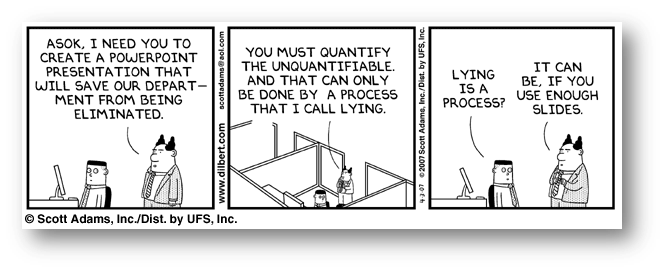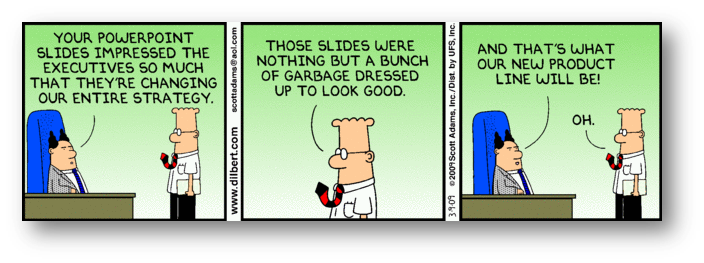Basic & Theoretical Considerations
You can create a stand-alone presentation that will incorporate all the animations, sounds, and narrations you include in it and can run automatically, even if you are not present.
Doing the presentation
Try out your presentation in advance
- check to see if the timings of the transitions and animations will work for the audience
- pay particular attention to how much time it takes for animations to occur
- remember that most audiences do not have a lot of time to spend waiting for things to happen
The eye can see and understand concepts very quickly.
The quicker your presentation can get in,
make a positive impression,
and get out,
the better off you will be.
[top]
Key principles to consider

-
focus on the audience's needs
and build your visuals to conform to their expectations
and your message
- simple and effective is preferable to complex and confusing
[top]
Rules to live by

Hammer it home
- tell them what you're going to tell them
- tell them
- tell them what you told them
Less is More
[top]
Thoughts on the role of visual elements in communication
Watch it on your own.
[top]